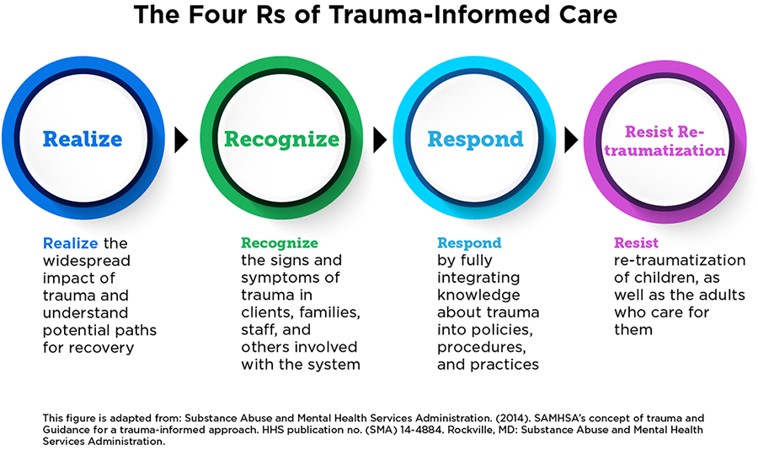Trauma-Informed

What Does Being Trauma-Informed Mean?
Being trauma-informed is recognizing that people often have many different types of trauma in their lives. People who have been traumatized need support and understanding from those around them. Often, trauma survivors can be re-traumatized by well-meaning caregivers. Understanding the impact of trauma is an important first step in becoming a support system in the aftermath of a traumatic event.
What is Trauma?
Trauma is an event that happens to someone that impacts them physically, emotionally, and/or psychologically. There are three important things to remember when it comes to trauma:

How to be Trauma-Informed
We have broken down the various ways of being trauma-informed. Click any button below to learn more about each category.

Trauma-Informed Social Media Resources
Social media has enabled violent stories and graphic images to be watched by the Republic in unedited detail, and it can greatly affect our psyche and emotional well-being. Watching these events and feeling the anguish of those directly experiencing them have an impact on our daily lives.



